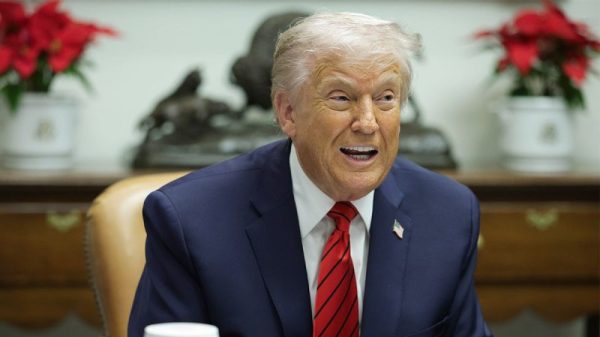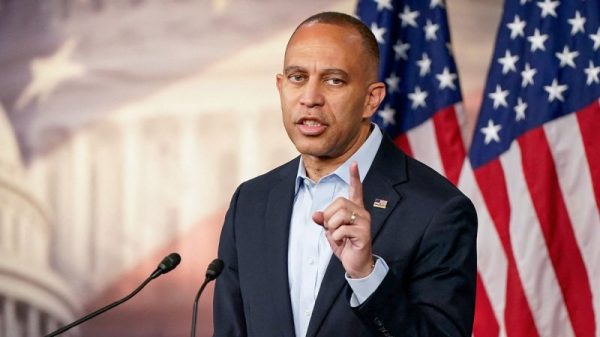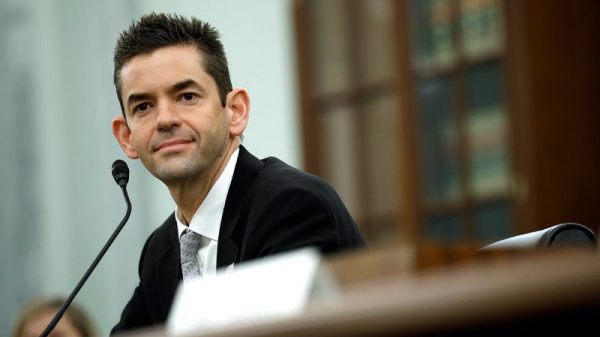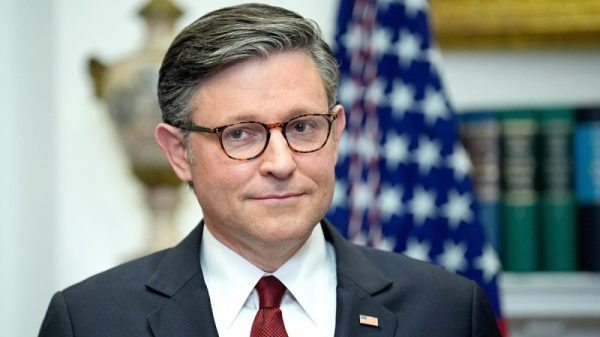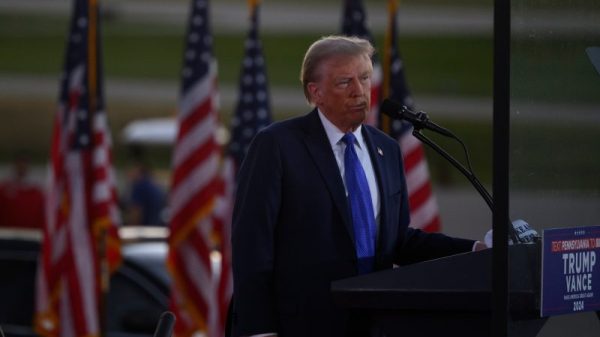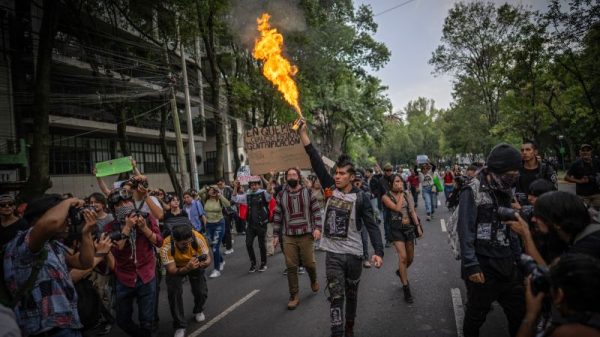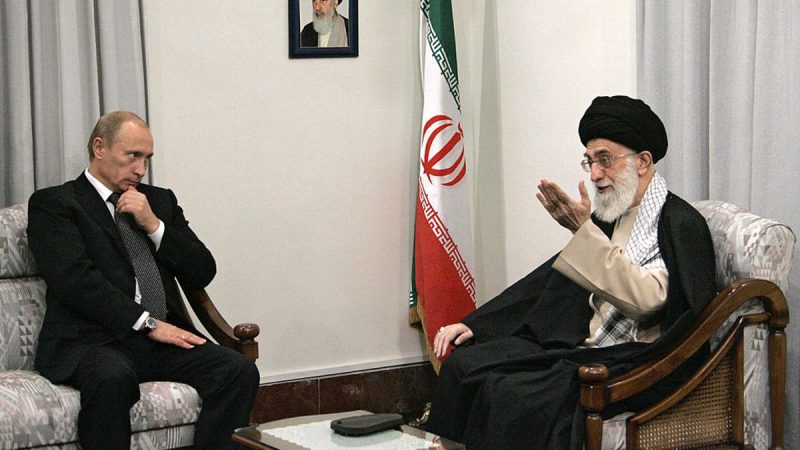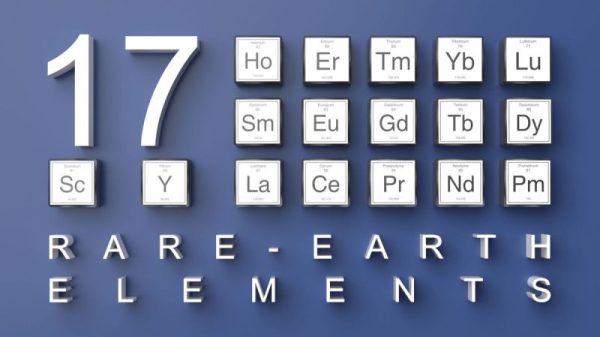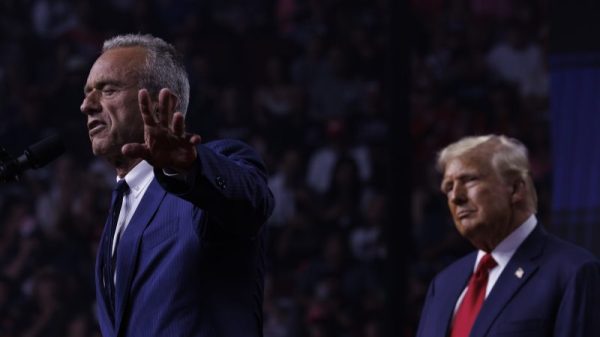In his remarks during last week’s United Nations General Assembly, Iranian President Masoud Pezeshkian, claimed that Iran wants to ‘live in peace.’ He demanded ‘a world free of nuclear weapons,’ and declared that Iran ‘is ready to disarm,’ if Israel does the same.
But just two weeks prior, Iran and its fellow dictatorship Russia were slapped with new economic sanctions by the Biden-Harris administration for Tehran’s delivery of ballistic missiles to Moscow. In fact, the national security community is increasingly concerned about the growing relations between two of America’s top adversaries. However, as Team Biden-Harris is hyper-focused on the threat this unholy alliance poses elsewhere in the world – Ukraine, the Middle East – what about us? Is anyone in charge of protecting our homeland?
As a former U.S. intelligence analyst who led Red Teams during war games, my team’s job was to come up with, thinking like our adversaries, out-of-the-ordinary ideas – no matter how implausible – that Red Force (Russia, Iran, etc.) could use against Blue Force (U.S. and Allied militaries). The goal was to enable the president, the Pentagon and other decision makers to develop plans for countering our adversaries and protecting the homeland. Here are a few insights, from the intelligence perspective, that make the Iran-Russia threat even bigger than most Americans realize.
First, neither Russian nor Iranian leaders respect the Biden-Harris administration, making them more likely to act more aggressively against the United States. As a clear sign of indifference to Washington’s ire, two days after the new sanctions went into effect, Russian President Vladimir Putin held a meeting with Ali Ahmadian, secretary of the Supreme National Security Council of Iran. In it, he praised the supreme leader of the Islamic Republic, Ayatollah Seyyed Ali Khamenei, for fostering ‘additional momentum’ in Russian-Iranian relations and thanked Pezeshkian’s team for making the relationship a ‘priority.’ Five days later, Putin dispatched his top security official, Sergei Shoigu, to Tehran, where Shoigu held secret talks with Pezeshkian.
Neither Russia nor Iran is afraid of economic sanctions. They’ve used loopholes in the sanctions regime to circumvent them and found alternative ways to finance their policy priorities and military programs. Despite the fact that the U.S., European Union (EU) and its Western allies banned nearly all Russian imports at the start of the war in Ukraine, Western nations purchased $2 billion worth of Russian oil indirectly through Turkey.
In 2023, the Biden-Harris administration released $6 billion in unfrozen assets to Iran as part of the deal to release five American hostages in exchange for five Iranians held in U.S. prisons. It is almost a certainty that some of those funds were diverted by Iran toward its military programs and to train and equip its proxy terrorist groups, such as Hamas, Hezbollah and the Houthis.
Sanctions, therefore, are an optics instrument that politicians use to virtue signal that they are doing something in response to hostile foreign activities. They have not and will not change the behavior of our adversaries.
Second, both Putin and the ayatollahs understand that as Team Biden-Harris is focused on European and Ukrainian security, security inside the homeland isn’t taken seriously, presenting a vulnerability to be exploited. Explaining the decision for the new sanctions package, Secretary of State Antony Blinken expressed concern that Moscow will ‘likely use… Iranian ballistic missiles… against Ukraine.’ Blinken characterized the weapons trade between Moscow and Tehran as a ‘threat to European security.’
The Biden-Harris administration has approved billions of dollars for Ukraine to aid its defense against Russia, even as our own Secret Service is in crisis due to staffing shortages, high levels of turnover, inadequate training and incompetence of some of its personnel.
Two failed assassination attempts on former President Trump, during which would-be assassins were able to penetrate the security perimeter of the protectee, clearly demonstrate that the level of protection the Secret Service delivers is low. If security for a former president, with all the law enforcement personnel surrounding him 24/7, can be breached by an amateur, an operative trained and resourced by a state-actor like Iran or Russia, can do so much more damage. It also means that other targets – government buildings, military installations, critical infrastructure – are likely to be equally vulnerable. Saying nothing of soft targets, such as shopping malls and other public spaces.
Third, Russia and Iran have the capabilities and political will to conduct hostile clandestine operations inside the U.S. The recent arrest in New York of a Iranian-linked Pakistani man who plotted to kill American leaders, highly likely including Trump, is just one example of Iran’s ongoing policy of infiltrating operatives inside the U.S. for nefarious purposes.
Moreover, according to a 2024 report by the Office of the Director of National Intelligence, Iran has been developing ‘surrogate networks inside the United States’ for ‘more than a decade.’ This assessment is consistent with a warning contained in another report about Iran’s plans to attack strategic security assets and institutions in the U.S. The report, titled ‘The Unseen Threat of the Mapping Project,’ claims that Iranian elements have identified 298 American strategic security assets and institutions, as well as personnel, for attacks, kidnappings and assassinations.
Couple this with the fact that Russia, for decades, has been running an ‘illegals’ program aimed at maintaining networks of deep-cover sleeper agents inside the United States. In 2010, the FBI had to pull the plug on a 10-year counter-intelligence operation aimed at rooting out such a spy network inside the United States because one of the female spies was moving uncomfortably close in access to then Secretary of State Hillary Clinton, her husband Bill Clinton, and members of their inner circle. The Russians almost certainly keep this program alive, now that the Biden-Harris open border policy has made it so much easier to infiltrate foreign operatives.
The Iranian regime has been funding anti-Israel protests on university campuses across the country. These ostensibly ‘grassroots activist’ groups, which sometimes don’t know who is behind them, present a vast pool of resources that could be weaponized, with the help of foreign clandestine operatives. What Putin and the ayatollahs want is to foment social unrest inside the United States, consistent with the Russian doctrine of ‘controlled instability.’
Fourth, should Russia and Iran join forces in strategic capabilities, the threat to homeland security could be catastrophic. The U.S. government investigation in the aftermath of the 9/11 terrorist attacks concluded that the government’s principal error was a failure to ‘connect the dots.’ In other words, the pieces of the puzzle were to be found in many corners of the U.S. government. Yet no one connected the dots, making it impossible to predict and preempt the attacks.
We are now living in a similar period. Our security apparatus is stretched thin, with analysts being pulled in many different directions – Ukraine, the Middle East, China. The same failure of imagination that plagued our intelligence in 2001 could prevent us from visualizing an impending threat coming from Iran-Russia cooperation. Below, I will connect the dots.
Putin spokesperson Dmitriy Peskov acknowledged that the two countries are cooperating, including on ‘the most sensitive’ areas,’ which he didn’t specify. As someone who spent my intelligence career tracking threats to our homeland, here they are – cyber attacks, space warfare and WMD. We are vulnerable in these areas due to our reliance on technology in military operations and civilian life.
Russia has the world’s most extensive nuclear know how, some of which it is likely sharing with Iran, which is already extremely close to operationalizing its atomic weapons. Russia is also sharing space launch technology with Iran, helping Tehran place its satellites into orbit. A multi-mission satellite network is a pre-requisite for missile warning, targeting, and command and control, including the employment of nuclear weapons.
Russia has developed a comprehensive suite of counter-space weapons to target U.S. satellites during wartime and electronic warfare capabilities to disrupt the functioning of U.S. satellites in peacetime. Moscow has already used some of these capabilities during its war on Ukraine. It probably will share some of these technologies with Iran, which already has demonstrated jamming capabilities.
U.S. airlines, which rely on GPS for flight navigation, are already concerned about becoming targets of GPS spoofing. Spoofing attacks have surged over the past six months, with most of them originating from electronic-warfare transmitters in Russia, Ukraine and Israel.
Russia already poses a chemical and biological weapons (CBW) threat and retains an undeclared chemical weapons program, having used them at least twice in recent years, according to a 2024 intelligence report. Iran continues ‘research and development of chemical and biological agents for offensive purposes.’ ‘Iranian military scientists have researched chemicals, toxins, and bioregulators, all of which have a wide range of sedation, dissociation, and amnestic incapacitating effects.’
Military ties between Moscow and Tehran are indeed the closest they’ve ever been, having strengthened dramatically on Biden-Harris’ watch. As we are nearing the presidential election and Team Biden-Harris continues to prioritize someone else’s security, Americans must decide which future president is more likely to place America’s security first.












